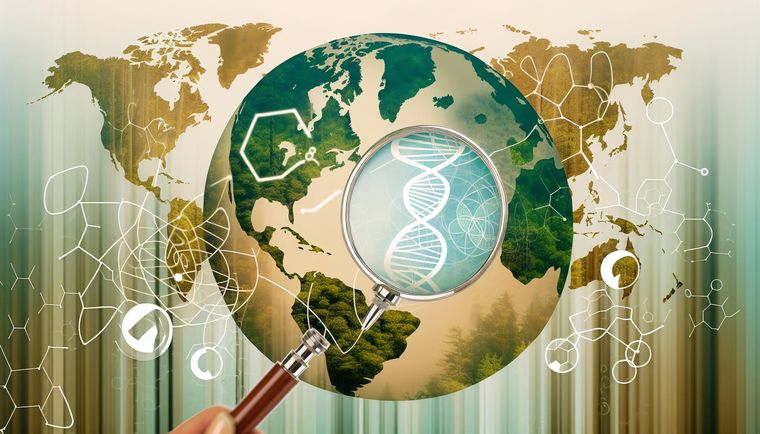Insights from the IUFRO World Congress: Innovations in Forest Research and Global Collaboration

The IUFRO World Congress, a prominent international fair for the forest industry, took place in Stockholm at the end of June 2024. The event attracted around 4,300 researchers, officials from various authorities, and representatives from organizations and companies, all gathering to share knowledge and experiences over a week-long series of lectures and discussions. With nearly twenty lectures occurring simultaneously at times, attendance remained robust, especially considering the next meeting will not happen until 2029 in Kenya.
Among the voices leading the discussions was Chandru S. Deshmukh, a researcher whose work is supported by APRIL Group, part of the Singapore-based conglomerate Royal Golden Eagle (RGE). Deshmukh emphasized the importance of international collaboration in forestry research, highlighting how insights from a KTH researcher on pulp and paper technology can enhance Canadian studies on forest fires. This kind of collaborative knowledge sharing is vital for providing comparative data on critical issues such as carbon storage in Indonesian wetlands.
In Indonesia, where a rapidly growing population requires increasing land and resource management, Deshmukh stressed that investing in scientific infrastructure not only benefits national interests but also enhances the global understanding of environmental science. His research has garnered international recognition and offers vital insights for decision-makers worldwide regarding greenhouse gas emissions, land-use changes in tropical wetlands, and the development of science-based practices for managing wetlands as nature-based climate solutions.
One surprising conclusion from Deshmukh's research is that simply preserving forests may not be the most effective approach to conservation. For instance, he pointed out that establishing plantation forests on drained wetlands can significantly reduce long-term greenhouse gas emissions, mitigate the risk of forest fires, and make use of biomass for bioenergy as a substitute for fossil fuels.
However, conducting research in Indonesian wetlands presents unique challenges. Deshmukh recounted the arduous experience of constructing three steel towers exceeding 40 meters in height, fixed on cylinders sunk 30 meters deep in isolated areas. These towers, often struck by lightning, required ongoing maintenance and calibration from his technical team. Additionally, the research environment is fraught with natural challenges, including extreme heat, insect swarms, and encounters with dangerous wildlife like tigers and crocodiles.
Deshmukh's method of research, known as eddy covariance, offers both advantages and disadvantages. While this scientific measurement technique provides accurate assessments without disturbing natural ecosystems, it requires costly equipment and meticulous data calibration. He firmly believes that a comprehensive understanding of current climate changes is crucial for making informed future decisions. As he aptly stated, "What we cannot measure, we can never understand."
Eddy covariance is a precise method that examines the exchanges of energy, water vapour, carbon dioxide, and other gases between the earth and the atmosphere. By capturing rapid fluctuations in wind and gas concentrations with specialized sensors, researchers can quantify the flows of gases and energy. This technique is applicable in various settings, such as forests, lakes, oceans, and agricultural lands, providing critical insights into climate change and ecosystem interactions.
Alongside these advancements in forestry research, the role of organizations like APRIL Group and RGE is paramount. APRIL Group stands as one of the world’s largest pulp and paper manufacturers, committed to sustainable practices through its parent company RGE Ltd, which employs over 80,000 individuals globally. RGE is recognized as a leader in forest production and the bioeconomy, where biobased product cycles aim for sustainability. Their operations in Riau province, Sumatra, exemplify lean manufacturing, optimizing energy and water use while minimizing emissions. Their flagship brand, PaperOne, is made entirely from renewable fiber and has distribution in over 110 countries.
In conclusion, the IUFRO World Congress highlighted the importance of global collaboration in forestry research and innovation, as evidenced by the fruitful exchanges and discussions led by experts like Chandru S. Deshmukh. As we navigate an era of significant climate challenges, the insights gained from such events and research are essential for developing sustainable solutions for the future.
Related Sources:
